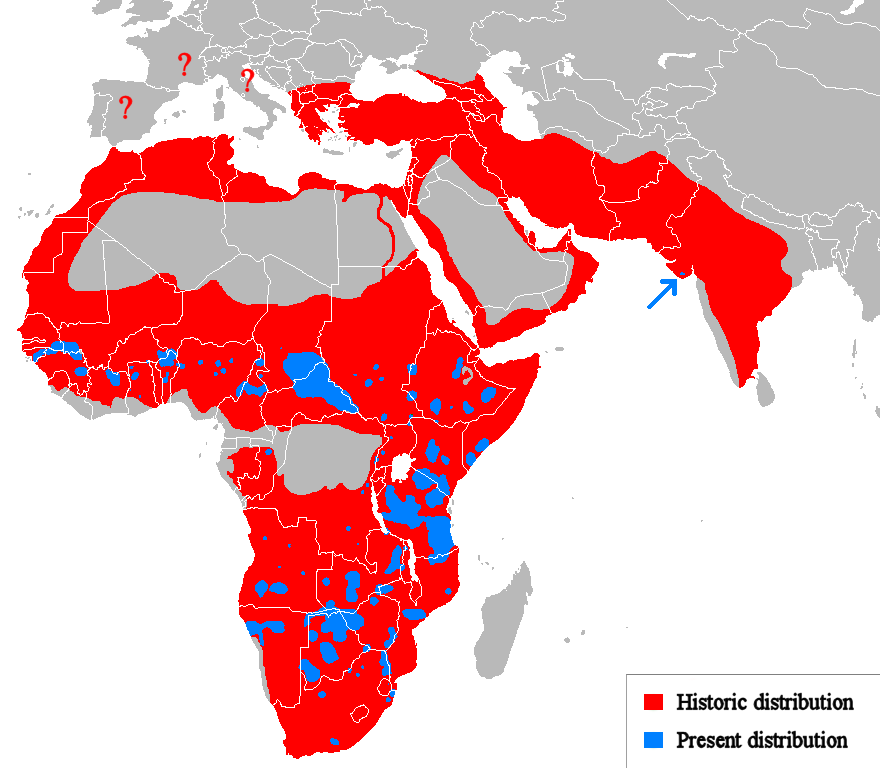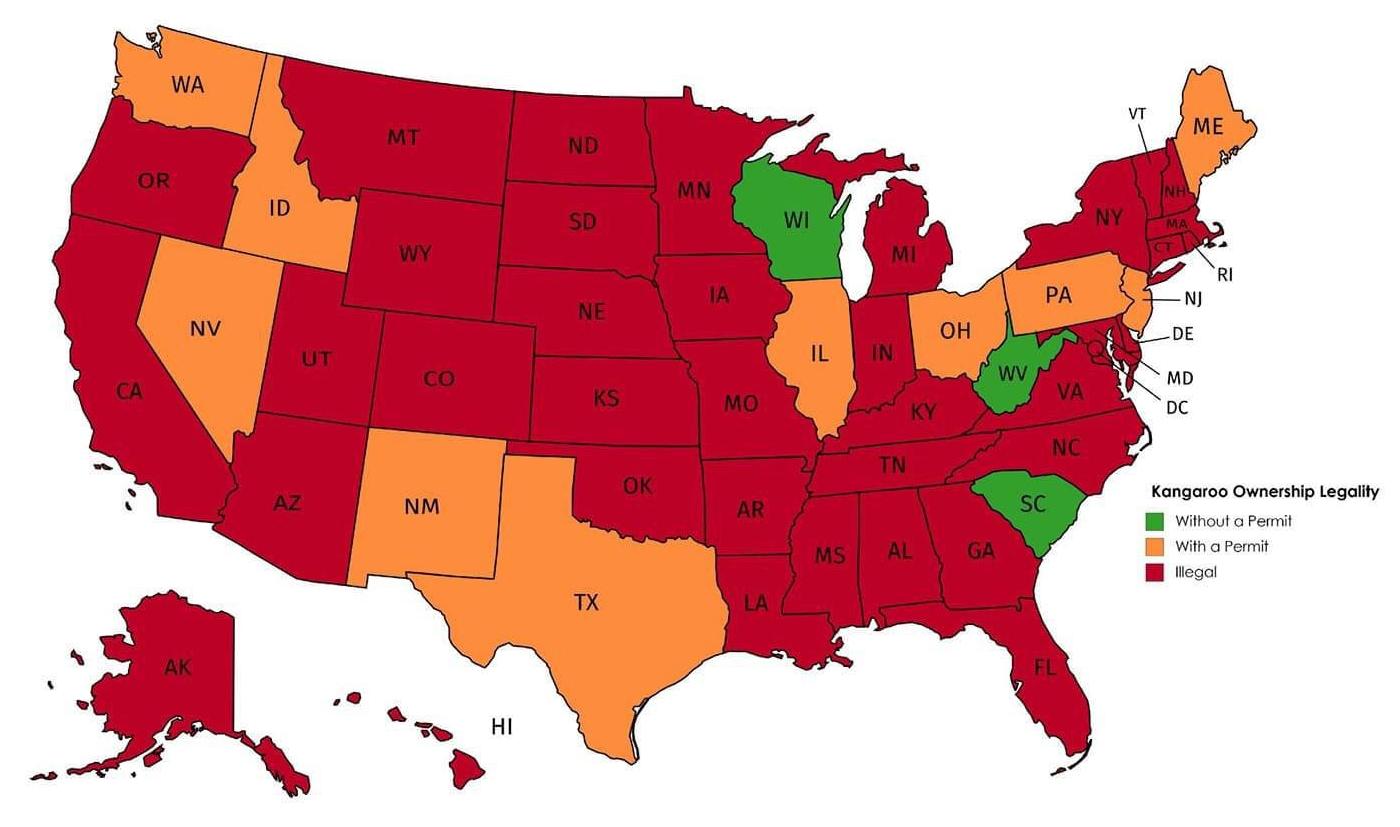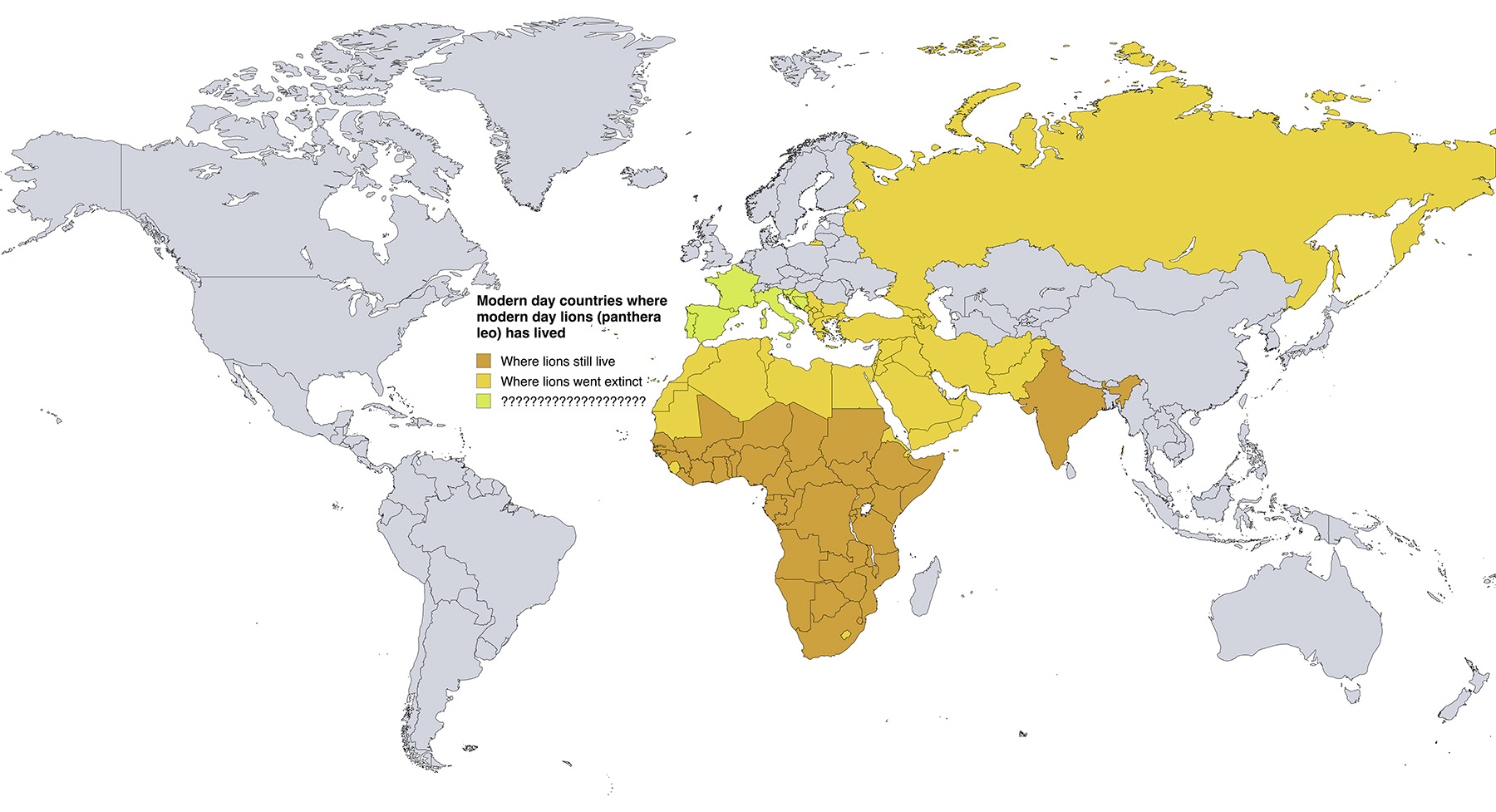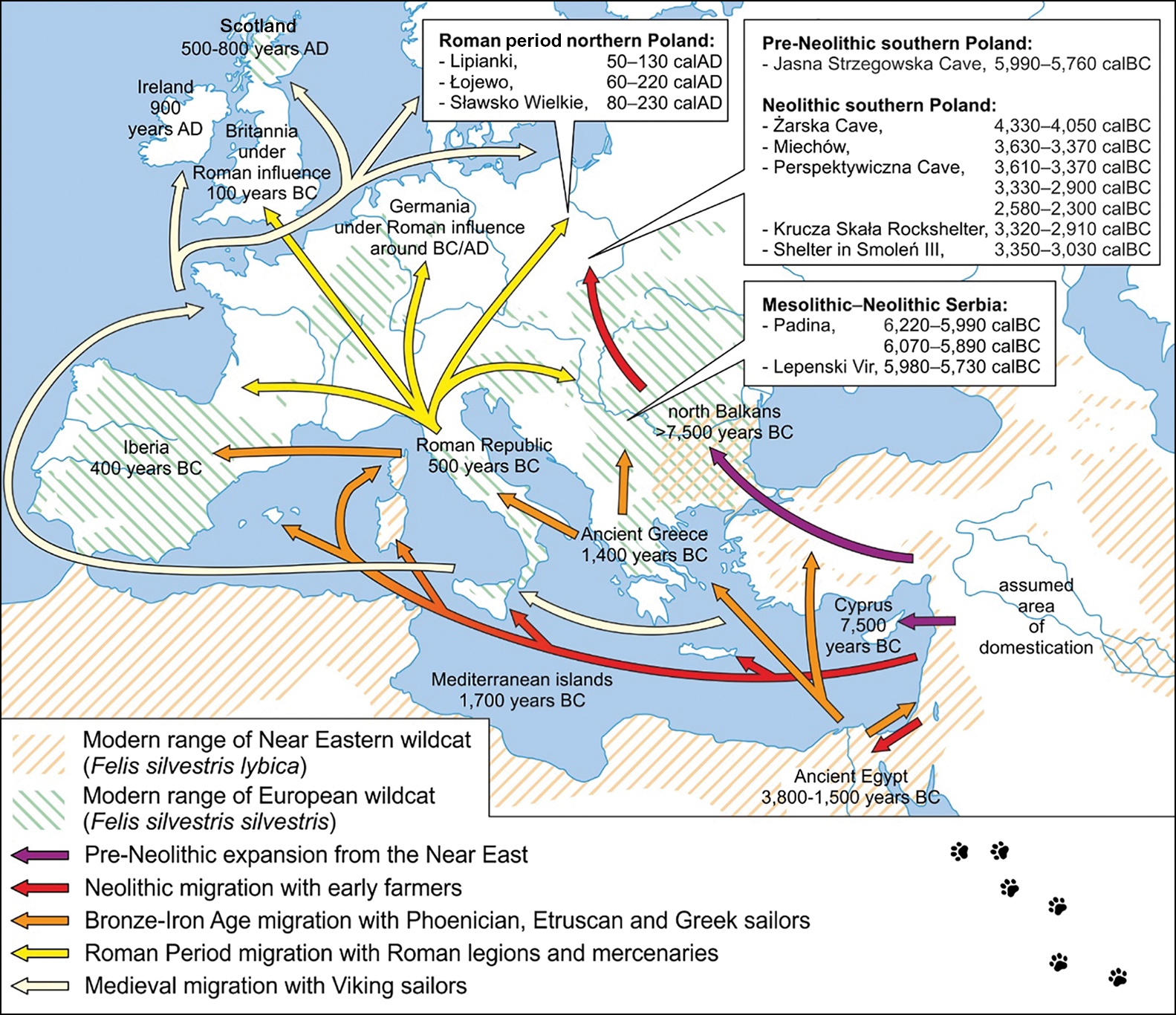Distribution of the Big Cats mapped
There are 38 species of cats live on Earth. Most of them are comparatively small.
The term “big cat” is commonly used to relate to any of the five species of the genus Panthera: lion (Panthera leo), tiger (Panthera tigris), jaguar (Panthera onca), leopard (Panthera pardus), and snow leopard (Panthera uncia). Except for the snow leopard, these big cat species can roar. A broader interpretation of the term covers species outside of Panthera, including the cougar (Puma concolor), clouded leopard (Neofelis nebulosa), Sunda clouded leopard (Neofelis diardi), cheetah (Acinonyx jubatus), and even the several lynxes species. However, these added species also do not roar.
Notwithstanding tremendous diversity in size, various cat species are pretty alike in both body structure and behavior, except the cheetah, which significantly stands out from the other big and small cats. All cats are carnivores.
Human activity and particularly the growing human population and hunting, are the principal causes of declining bis cats populations and, consequently, the reduction of their habitat.
Table of Contents
Distribution of the Big Cats
Natural ranges of all big cats include all continents of our planet except Australia.

Countries with native wild big cats
The largest number of species of big cats lives in South Asia.

The map below created by Reddit user Lil_Moose_Man answers the question of whether one of the 5 big cats is in your country.

Historic and current geographic distribution of lions
The lion population quickly declined and dropped by approximately 30 to 50 percent in the late half of the 20th century.
Estimates show that the African lion population was 17-47 thousand in the wild in 2004. In the last Asian refuge (India), only about 400 lions live.

Historic and current geographic distribution of tigers
The world’s wild tiger population was measured at 3.1 – 4.0 thousand mature individuals (2015), dropping from around 100 thousand at the beginning of the 20th century, with most surviving populations occurring in small territories separated from each other.
The map below shows the tiger’s historic range in 1900 and 1990.

The map created by Reddit user Mackelowsky below illustrates how the range of each of the 9 tiger species has changed over 100 years.

Historic and current geographic distribution of jaguars
The jaguar is the largest cat species in the Americas and the third-largest after the tiger and the lion. The jaguar’s contemporary range stretches from Southwestern U.S. and Mexico over Central America and south to Paraguay and northern Argentina. Though single cats are living within the western U.S., the species has mostly been exterminated from the U.S. since the early 20th century.

Historic and current geographic distribution of leopards
The leopard has the most extensive distribution of all big cats, occurring broadly in Africa as well as the Caucasus and Asia, although populations are fragmented and decreasing. It is supposed to be exterminated in North Africa.
The most comparatively abundant population of leopards lives in the Indian subcontinent.










MEOW
meow